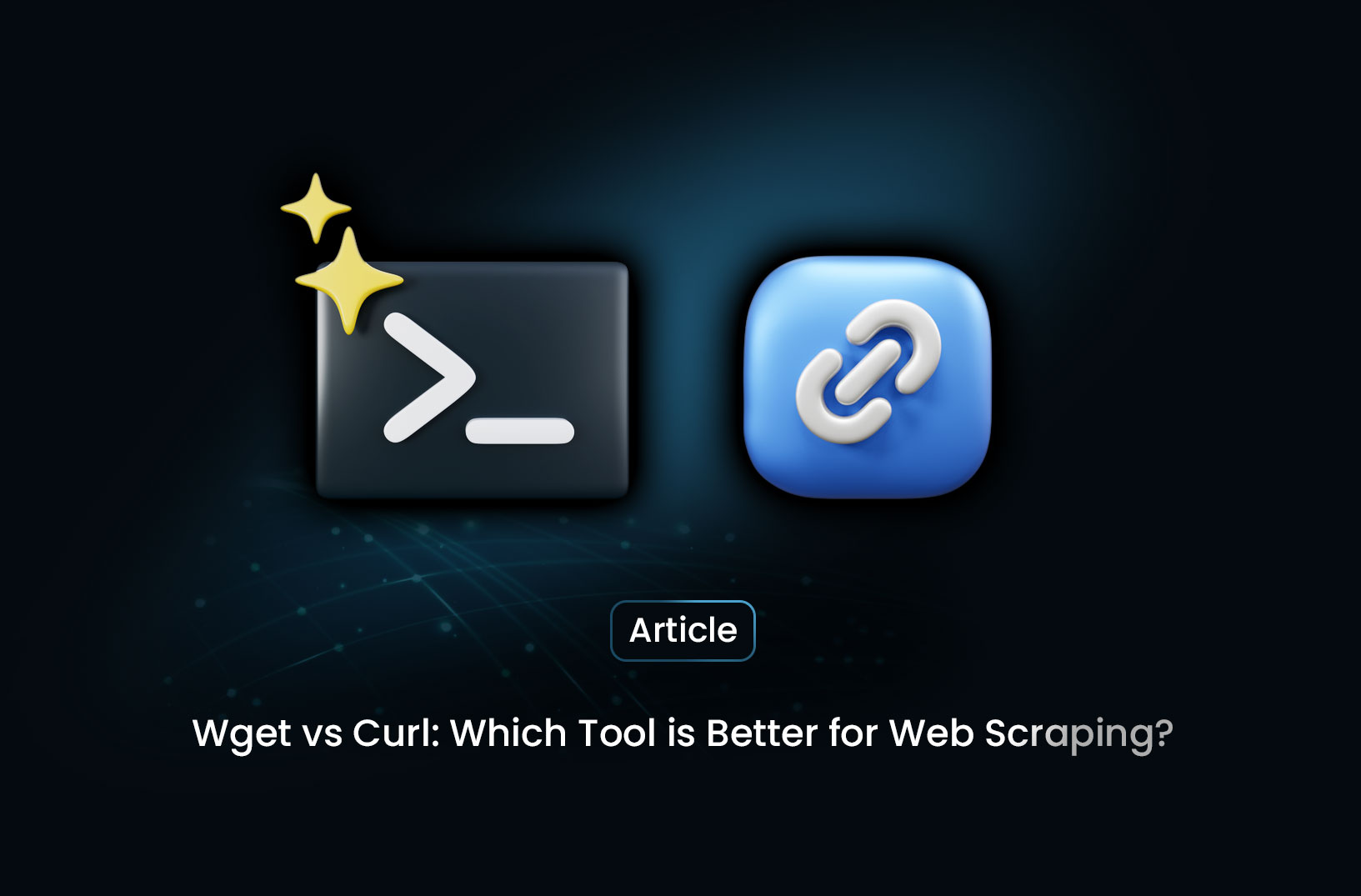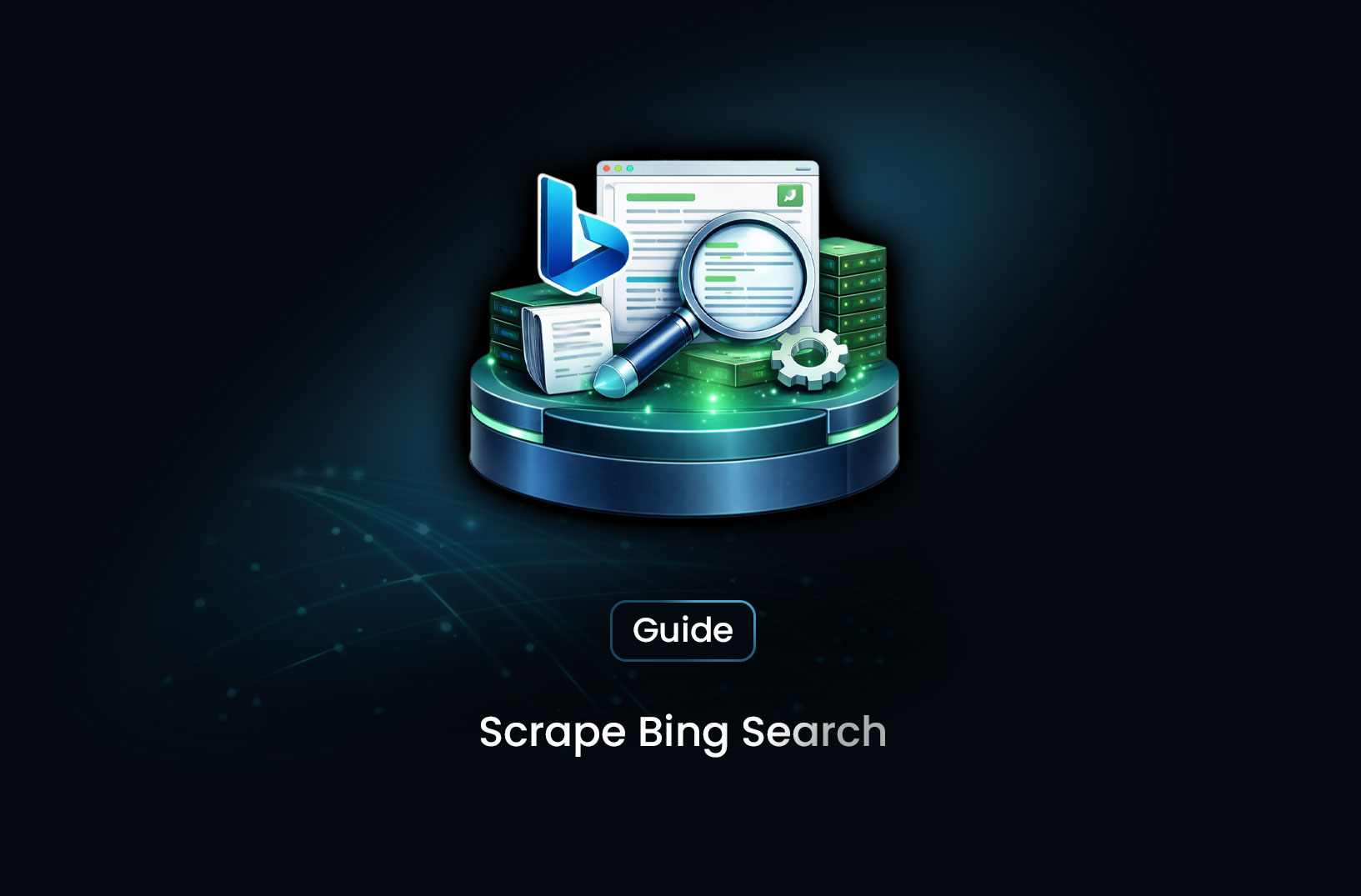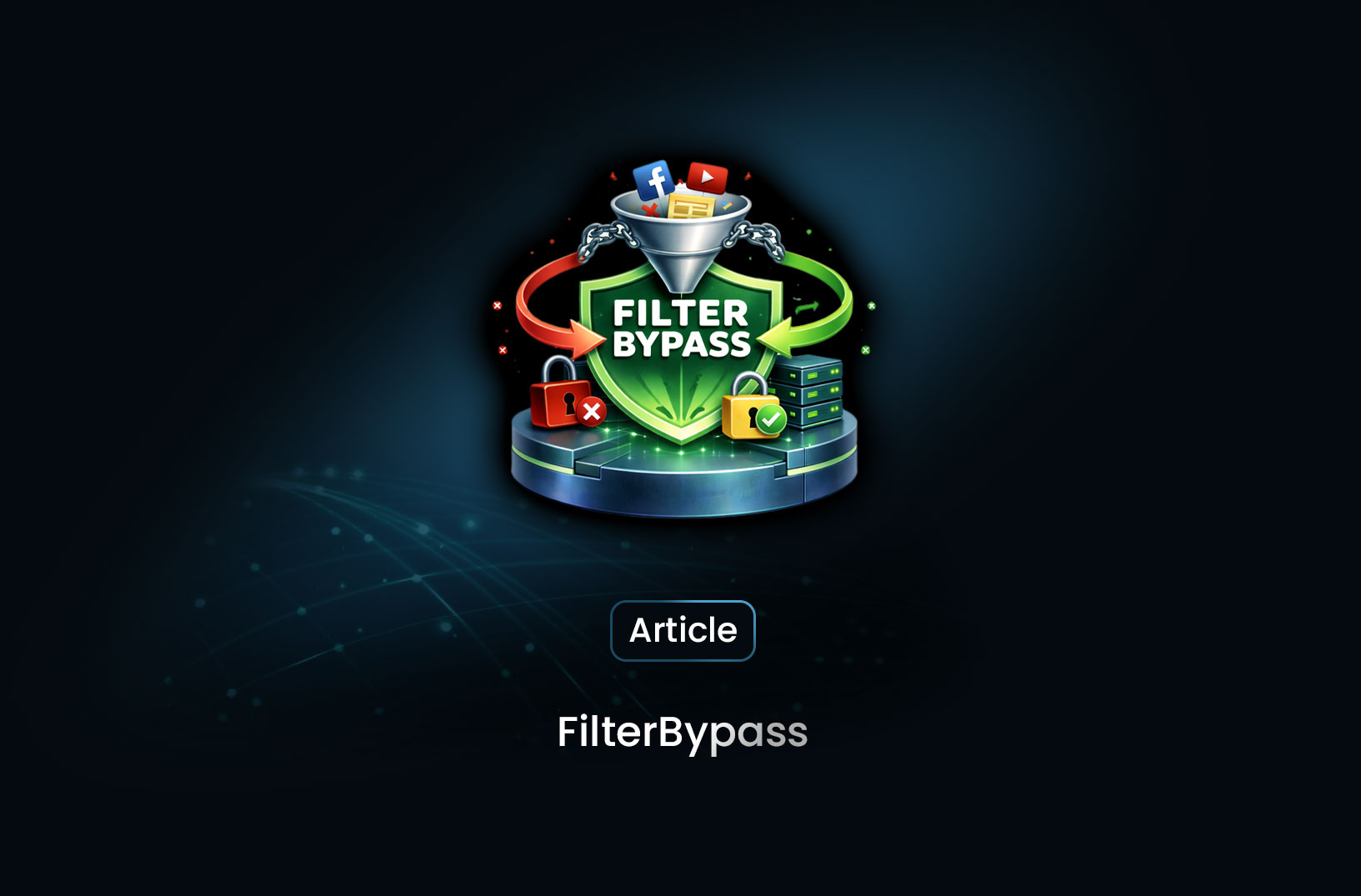
Wget vs Curl: Which Tool is Better for Web Scraping?
ArticleDiscover the key differences between Wget and Curl for web scraping. Learn their strengths, limitations, and why a tool like MrScraper can streamline your scraping tasks.
 When it comes to downloading content from the web or making HTTP requests, two powerful tools are often mentioned: Wget and Curl. Both are command-line utilities that allow users to fetch content from the web, but they have different strengths depending on your needs, especially in the world of web scraping.
When it comes to downloading content from the web or making HTTP requests, two powerful tools are often mentioned: Wget and Curl. Both are command-line utilities that allow users to fetch content from the web, but they have different strengths depending on your needs, especially in the world of web scraping.
In this post, we’ll dive deep into the comparison between Wget and Curl, exploring their differences, use cases, strengths, and limitations in web scraping. In the end, we’ll explain why using a comprehensive web scraping solution like MrScraper might save you a lot of time and effort.
What is Wget?
Wget is a free utility for downloading files from the web. It's particularly good at downloading files recursively, making it perfect for mirroring websites or downloading entire directories. Wget is simple, efficient, and capable of handling HTTP, HTTPS, and FTP protocols.
Example Wget Command:
To download an entire website recursively, you could use:
wget --mirror --convert-links --adjust-extension --page-requisites --no-parent http://example.com
What is Curl?
Curl (Client URL) is a command-line tool and library that lets you send data to or retrieve data from servers using many protocols, including HTTP, HTTPS, FTP, and more. Unlike Wget, Curl excels in making specific HTTP requests like GET, POST, PUT, and DELETE, making it more versatile for interacting with APIs and handling complex requests.
Example Curl Command:
To send a GET request to fetch a webpage’s content, you could use:
curl http://example.com
Wget vs Curl: Key Differences
While both Wget and Curl have overlapping use cases, here are the major differences:
| Feature | Wget | Curl |
|---|---|---|
| Primary Purpose | Downloading files recursively | Making HTTP requests (GET/POST) |
| Recursive Download | Yes | NO |
| Protocols Supported | HTTP, HTTPS, FTP | HTTP, HTTPS, FTP, many more |
| Resuming Downloads | Yes | Yes |
| HTTP Methods | GET only | GET, POST, PUT, DELETE, etc. |
| Handling APIs | Limited | Advanced API interactions |
| File Downloads | Excellent for file downloads | File download supported but not optimized |
When to Use Wget:
- Downloading Full Websites: If your goal is to download an entire website, complete with all its resources like HTML, images, CSS, and JavaScript files, Wget is the better option.
- Resuming Large Downloads: For scenarios where you’re downloading large files or dealing with an unstable connection, Wget’s resume feature is a lifesaver.
When to Use Curl:
- API Interactions: If you’re scraping data from APIs or need to perform custom HTTP requests like POST, PUT, or DELETE, Curl is the more appropriate tool.
- Flexibility with Headers and Cookies: Curl is superior when you need to customize headers, manage cookies, or deal with more complex authentication flows in web scraping.
Which One is Better for Web Scraping?
The answer depends on what kind of web scraping you’re doing:
- Simple Web Scraping: If you’re downloading static web pages or entire websites to analyze offline, Wget is an excellent choice due to its recursive downloading capability.
- API-Driven Web Scraping: For scraping dynamic content or interacting with APIs, Curl is the better tool. It gives you the flexibility to craft custom HTTP requests, send data, and handle authentication and session cookies.
Both Wget and Curl can be combined with other tools to build powerful scraping pipelines, but they have limitations, especially when dealing with complex websites, rate limiting, and anti-scraping mechanisms.
Challenges of Using Wget and Curl in Web Scraping
Despite their power, both Wget and Curl have some downsides for advanced web scraping:
- CAPTCHA and Anti-Scraping: Neither tool is equipped to handle CAPTCHAs, sophisticated anti-scraping techniques, or dynamic content loaded via JavaScript.
- Rate Limiting: Both tools may trigger rate-limiting mechanisms on websites, resulting in blocked IPs.
- Scalability: As your scraping needs grow, managing hundreds or thousands of HTTP requests manually using Wget or Curl becomes impractical.
Why Use MrScraper Instead?
While Wget and Curl are excellent tools for small-scale or one-off scraping tasks, building a large-scale scraping solution with them can be extremely challenging. This is where MrScraper comes in. Our service handles all the complexities for you, offering:
- Automated IP Rotation: We ensure you won’t get blocked by rotating proxies seamlessly.
- CAPTCHA Handling: Our system bypasses CAPTCHAs and other anti-scraping mechanisms.
- API Integrations: We make it easy to scrape both websites and APIs, offering flexible request configurations like Curl.
With MrScraper, you don’t need to worry about the limitations of using Wget vs Curl. Our solution handles all the technicalities, allowing you to focus on the data you need instead of getting bogged down in the details of scraping.
Find more insights here

Scrape Bing Search: A Practical Technical Guide
Bing scraping blocked? Discover how to bypass rate limits and bot detection to extract URLs, titles,...

FilterBypass: Unblocking Restricted Sites in a Simple Way
FilterBypass is a free web proxy that acts as an intermediary between your browser and the target si...

YouTube.com Unblocked: Accessing YouTube When It’s Restricted
Learn how to access YouTube unblocked on school, work, or regional networks. Explore VPNs, proxies,...
